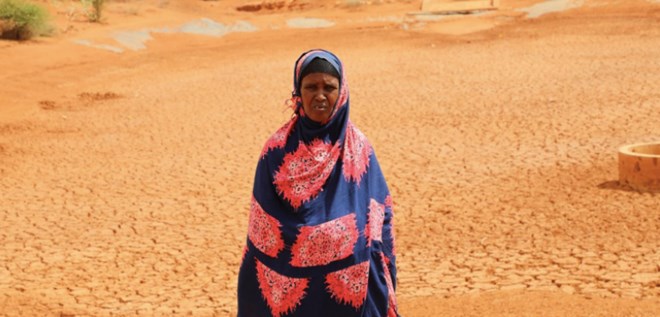Women and Girls in Somalia Continue to Be the Most Affected by the Humanitarian Crises



Source: CARE
Thursday September 30, 2021

The CARE survey – carried out across five different administrative regions in July 2021 – shows that 77.5% of communities reported that ongoing drought was their biggest challenge, closely followed by COVID-19 (identified by 72%).
Halima*-a 32-year-old mother who was displaced by the 2017 drought lost her mother to COVID-19, her husband left home to look for jobs and never came back, leaving her to take care of their four children.
“The loss of my mother to COVID-19 was the most painful situation and now as a single mother with four kids and no support, it’s very hard to earn a living and look after my children… sometimes we eat, sometimes we stay hungry, this is how life is.” Said Halima
advertisementsAs a result of the drought and COVID-19 induced economic challenges, reports of girls dropping out of school and increase in cases of female genital mutilation have become more widespread.
Gender-based violence also remains pervasive, with 33.9% of women and girls living in settlements reporting sexual violence as their biggest concern, followed by inability to access services and resources (27.3%), then violence in homes (25.7%).
Hamda* a 24-year-old woman has been struggling to restart her business which was destroyed by the 2020 floods. The COVID-19 pandemic made it even more difficult for her as she was relying on support from her relatives who work abroad, due to global lockdowns, her relatives stopped providing support.
Hamda* said: “The combination of floods and COVID-19 has made life even more difficult, we need immediate support like food vouchers, shelter for the internally displaced people, capital for those who lost their businesses during the floods, health support and protection for everyone especially women and girls.”
The CARE survey also showed that entrenched gender norms continue to prevail in Somali society, with only 27% of the female-headed-households surveyed having received any form of formal education (compared to 41% of men).
It also highlights the inequalities that persist in gendered roles with over 60% of men and women surveyed responding that certain types of jobs such as nursing and cooking should only be carried out by women and that women cannot be strong community leaders.
CARE is calling for prioritization in supporting communities to start self-help groups and invest in augmenting existing women’s groups with livelihood trainings.
With the current drought and locust invasions that are threatening to deepen the crisis in an already fragile environment, there is great need for donor/government agencies to extend the much needed humanitarian assistance to the affected communities especially Internally Displaced Persons, pastoralists and vulnerable host communities.
*Names changed for protection reasons

